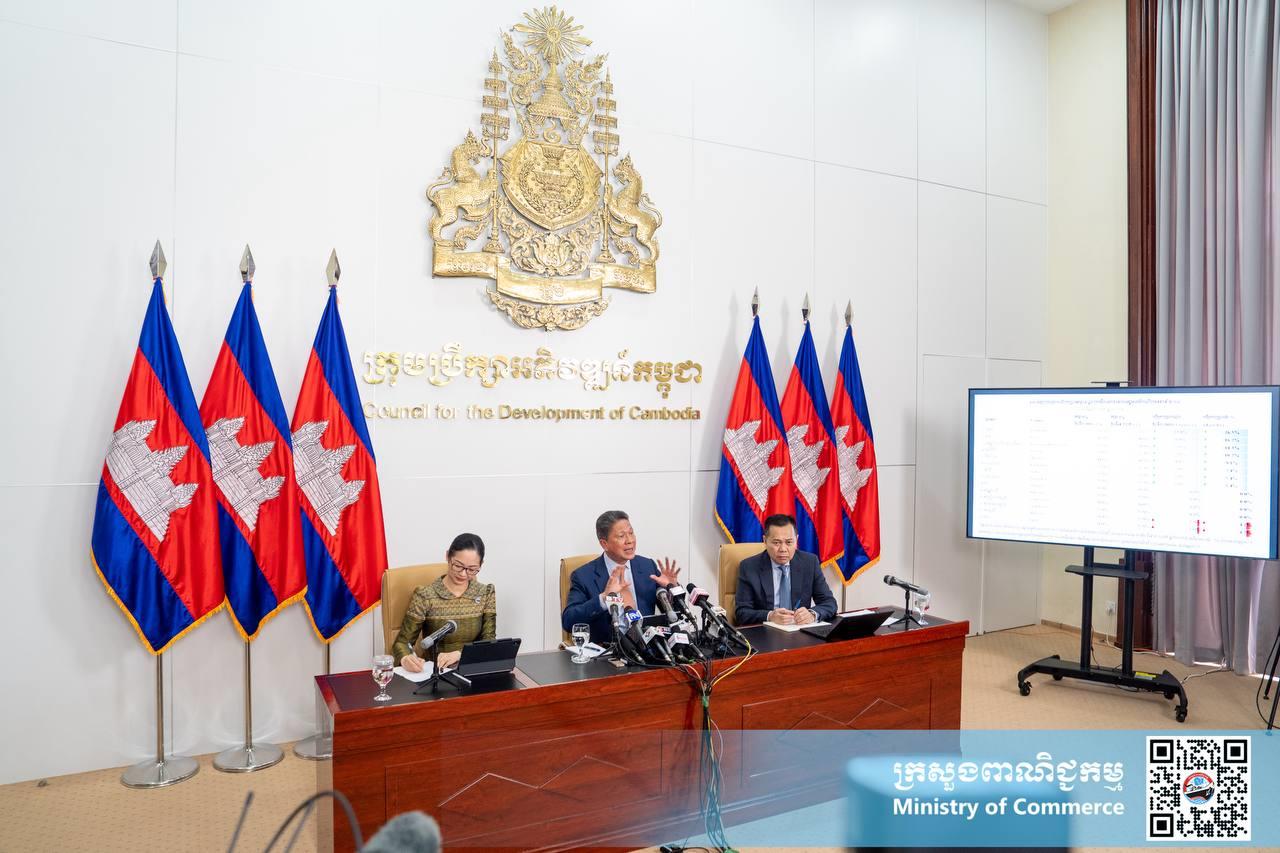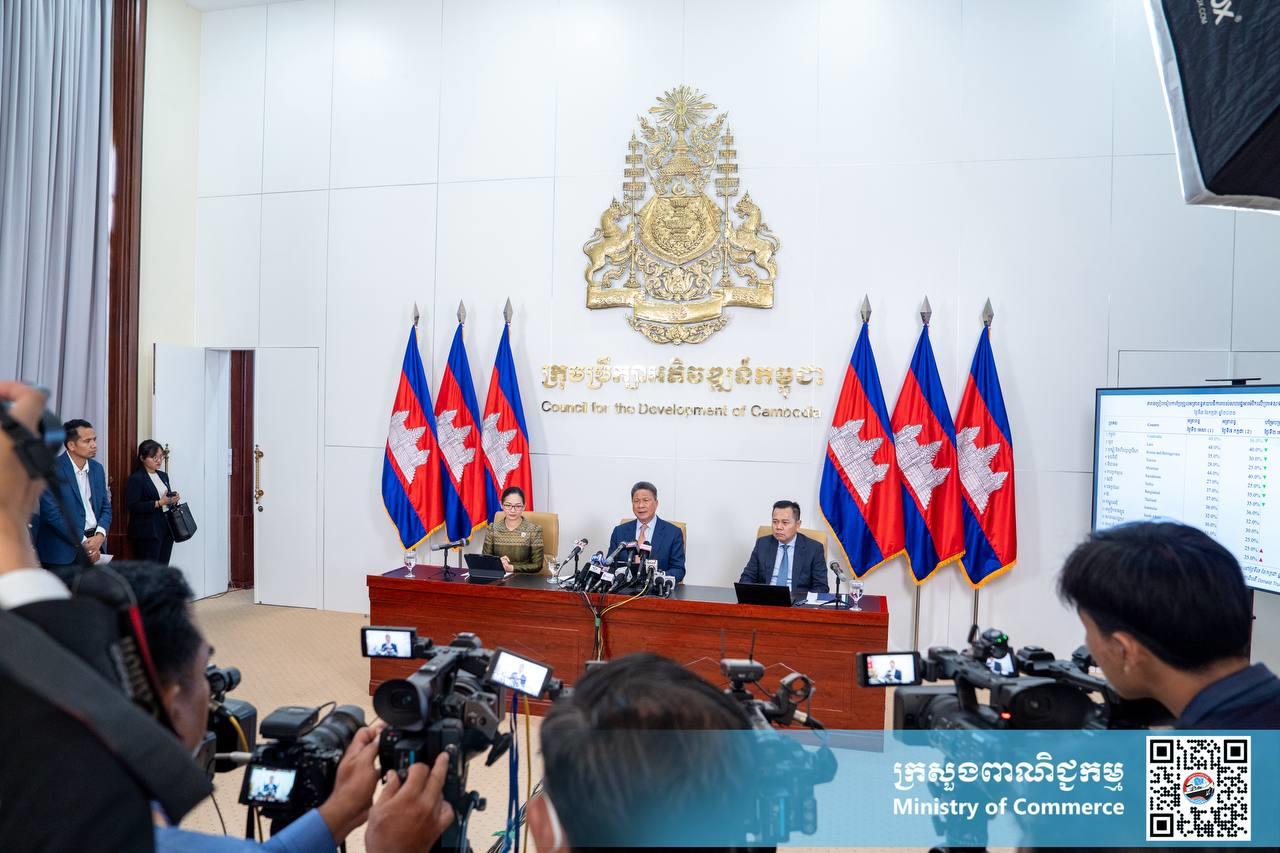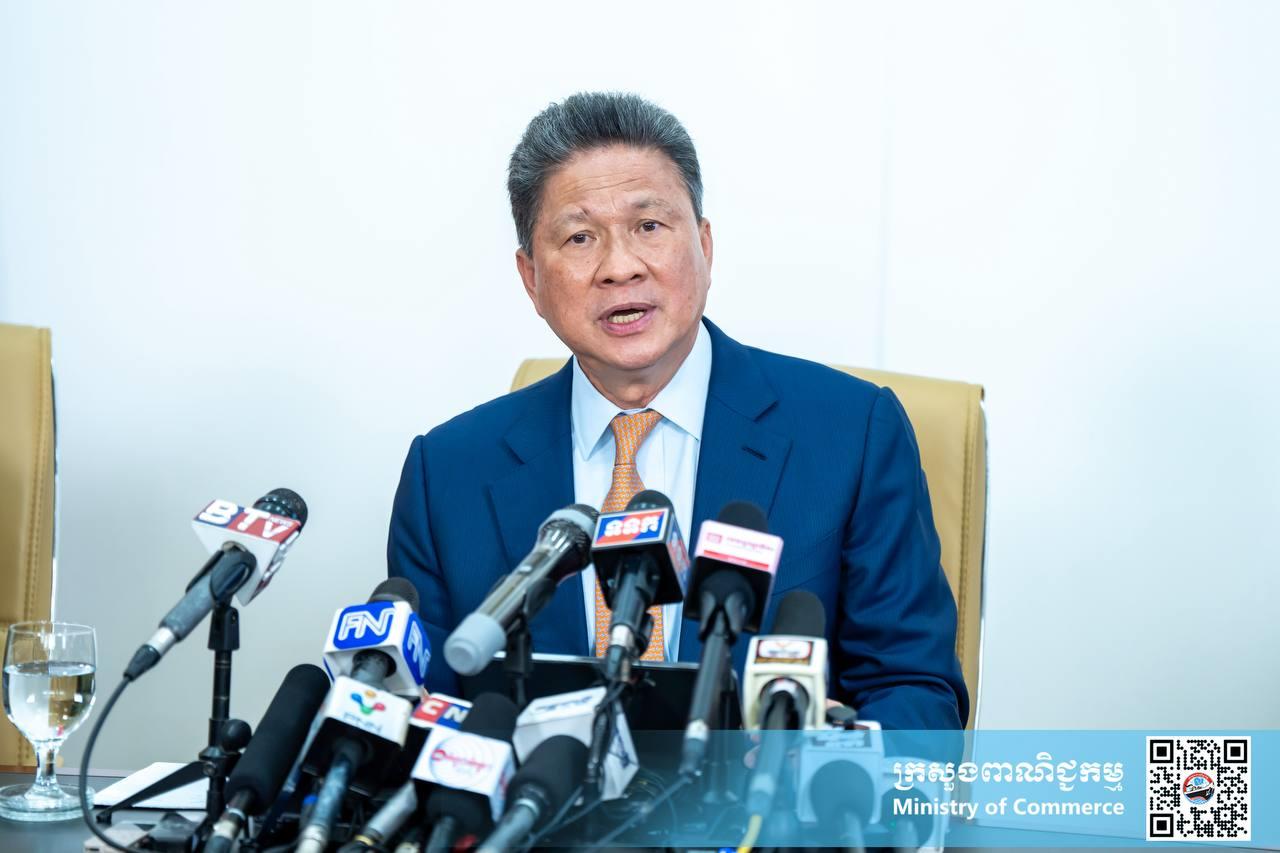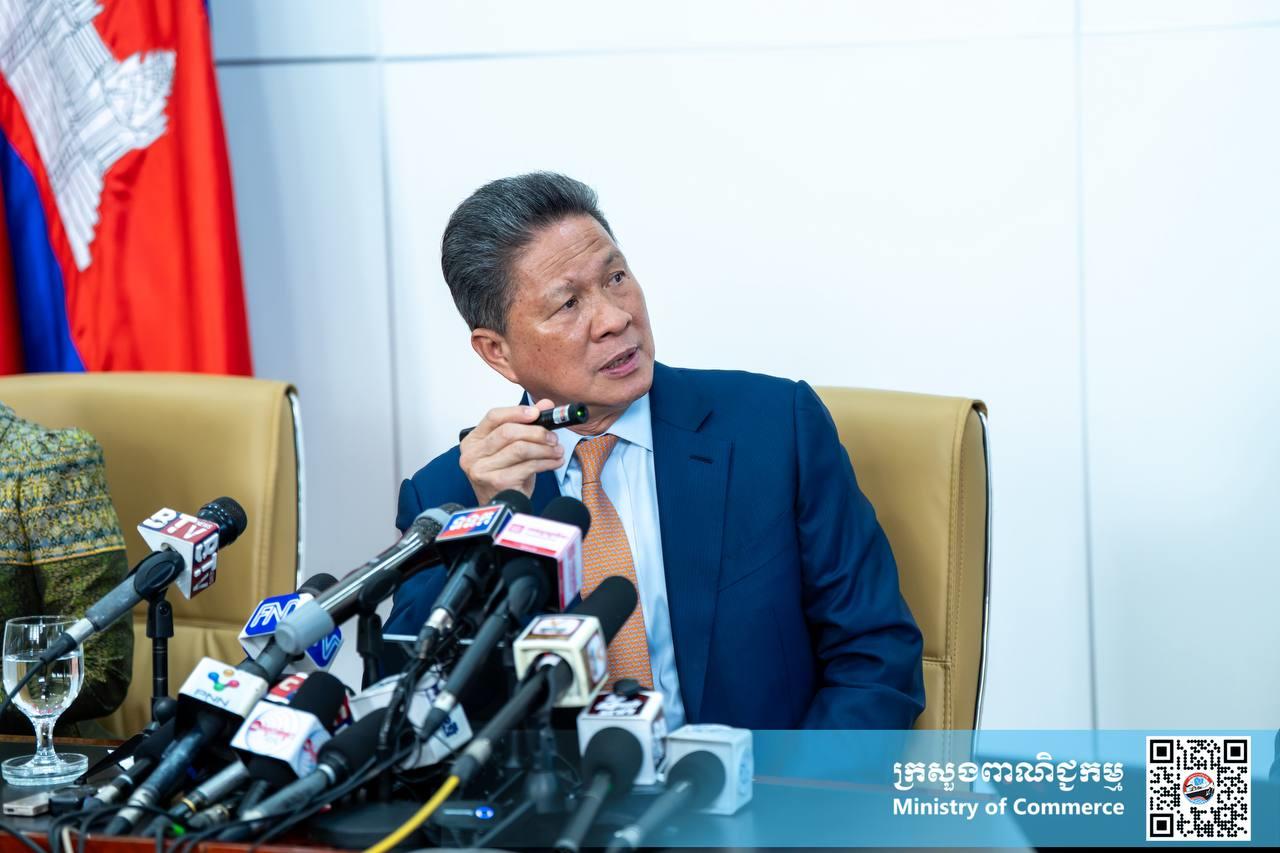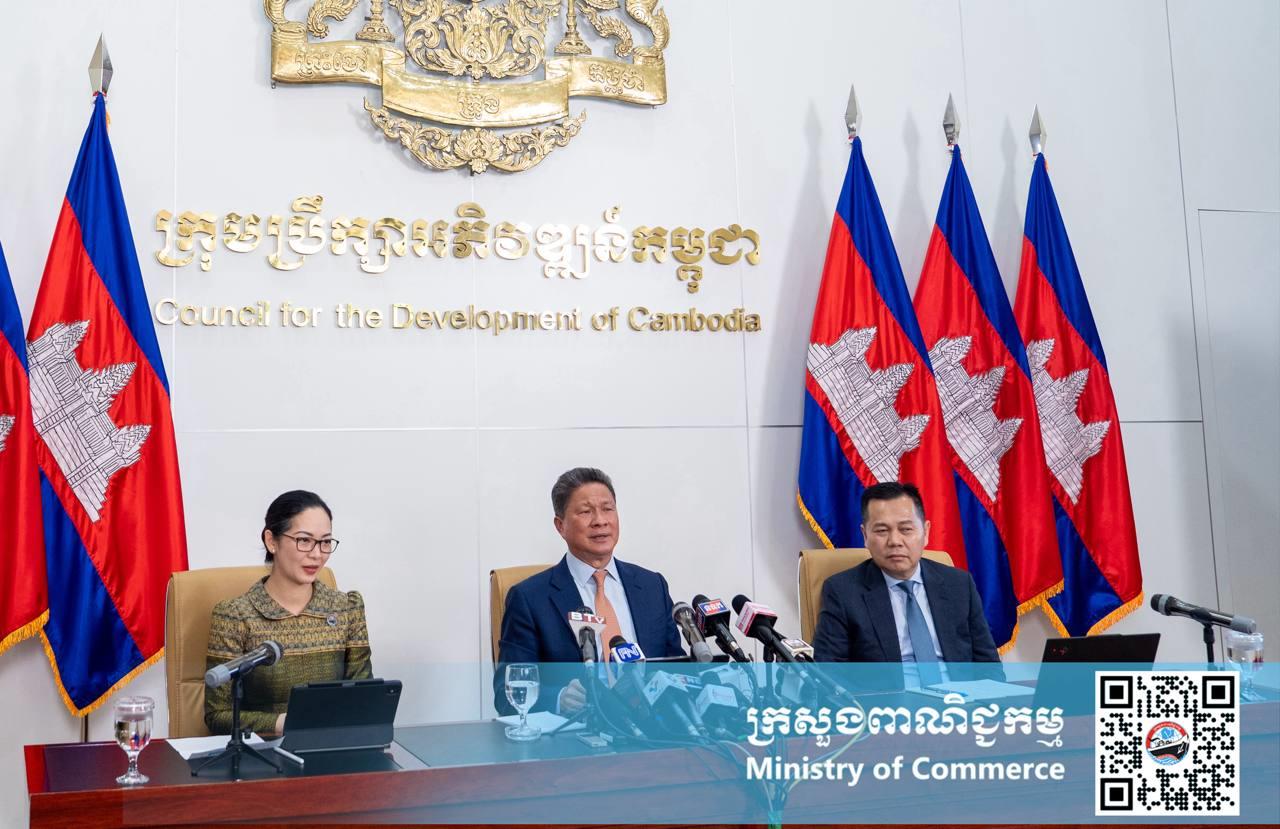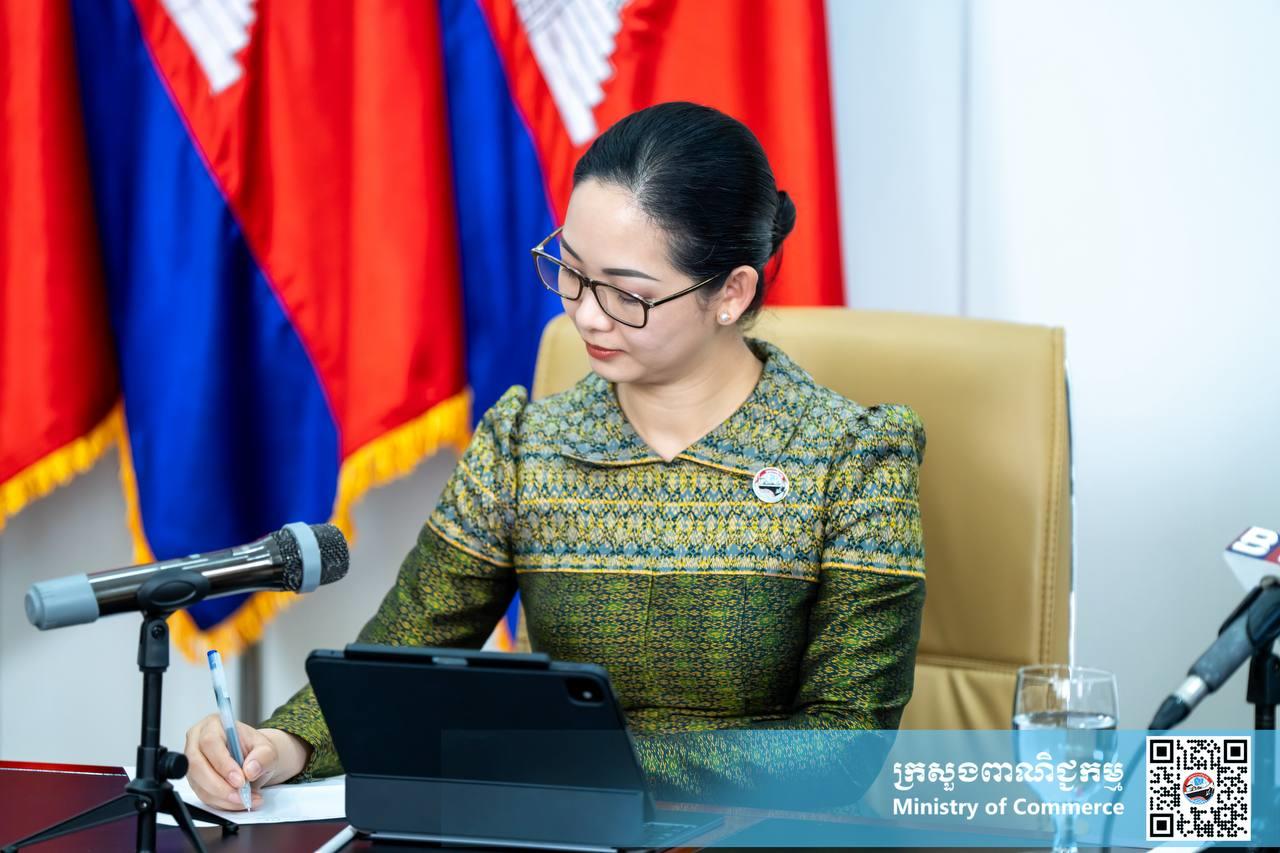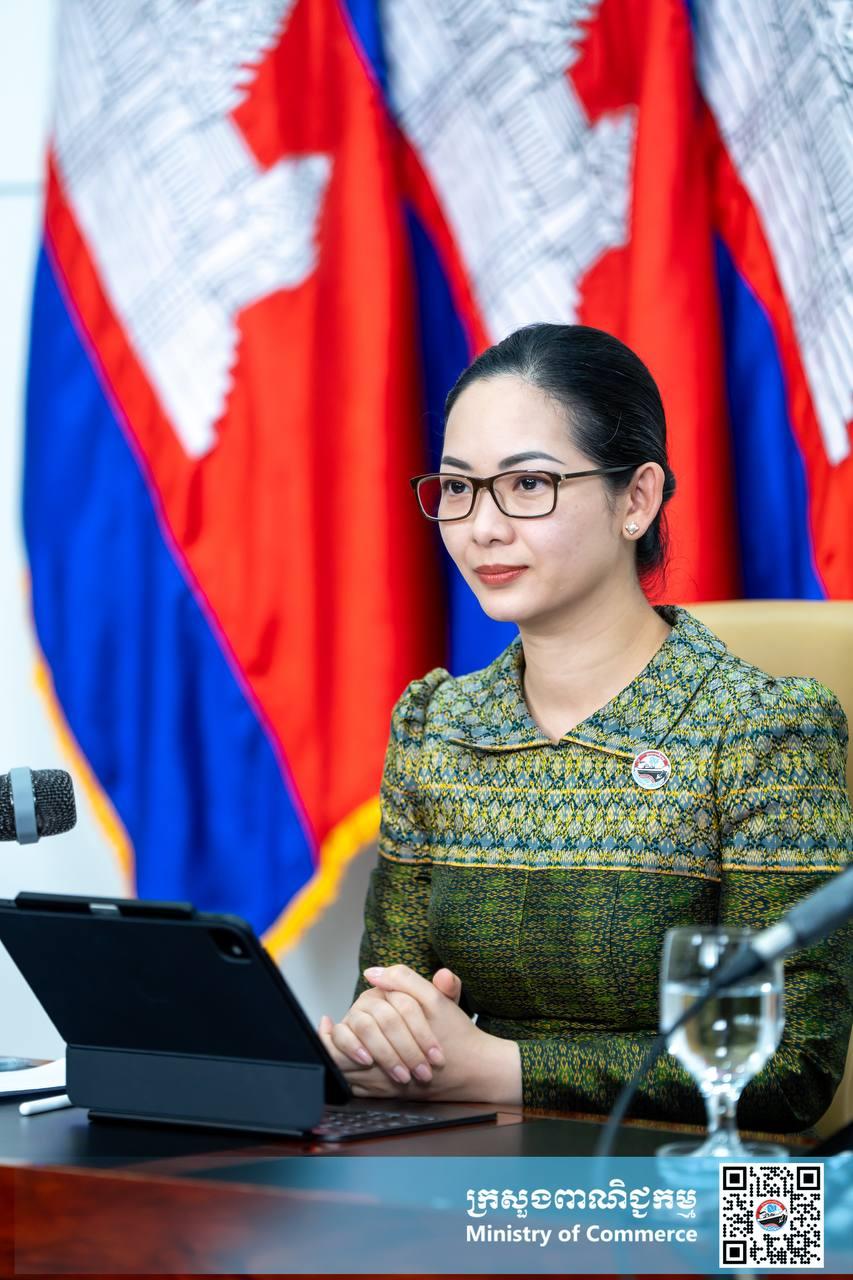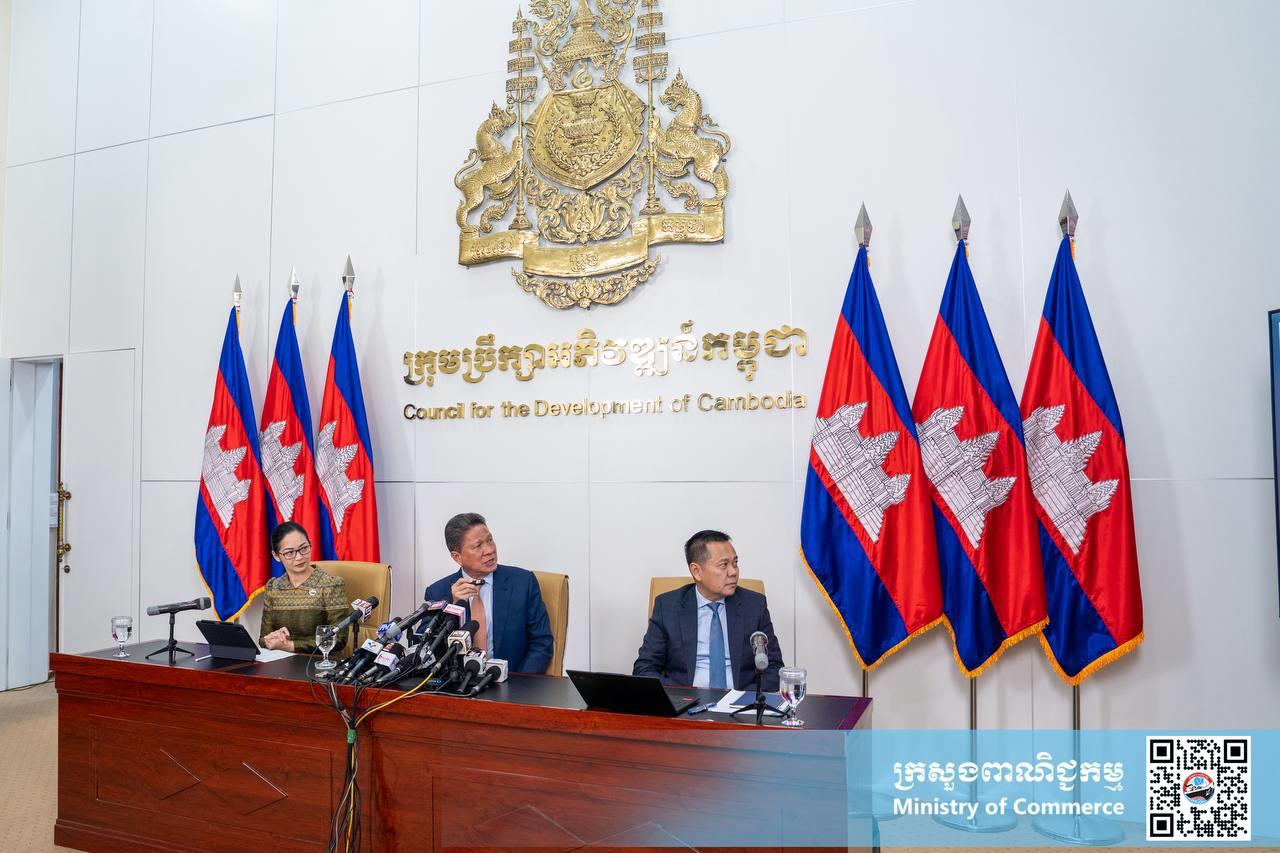(Phnom Penh): Deputy Prime Minister Sun Chanthol, First Vice President of the Council for the Development of Cambodia (CDC), reaffirmed that Cambodia’s peace, political stability, and sound macroeconomic management give the country strong potential to retain current investors and attract new ones.
He spoke on 8 July 2025 during a press conference on the outcomes of the tariff negotiations with the United States, held at the CDC headquarters.
“The Royal Government of Cambodia is focused not only on safeguarding existing investments, but also on attracting new ones to generate jobs and boost economic growth,” he said.
He outlined several key factors underpinning Cambodia’s investment appeal, including long-standing peace and political stability, robust macroeconomic fundamentals, and a young, dynamic workforce, with over 60% of the population is under the age of 35.
Cambodia’s strategic location in the Greater Mekong Subregion was also highlighted, offering access to a regional market of over 250 million people across Cambodia, Viet Nam, Thailand, Laos, Myanmar, and China’s Yunnan Province.
Moreover, Sun Chanthol noted that Cambodia’s investment reach extends beyond its 17 million citizens. Through ASEAN and the Regional Comprehensive Economic Partnership (RCEP), investors gain access to markets totaling 670 million in ASEAN and 2.3 billion across RCEP countries, including China, South Korea, Japan, Australia, and New Zealand.
Sun Chanthol also noted that Cambodia offers the most investor-friendly investment law in the ASEAN region. The law allows for 100% foreign ownership across all sectors, making Cambodia a more attractive destination for investors.
To further support investment, the government has implemented wide-ranging measures aimed at reducing production costs, streamlining operations, and eliminating delays, ensuring a more efficient and predictable business environment.
In the first half of 2025, Cambodia approved nearly USD 6 billion in investment across 373 projects. More than 60 additional projects worth over USD 1.5 billion are currently under review by the CDC.
=FRESH NEWS

